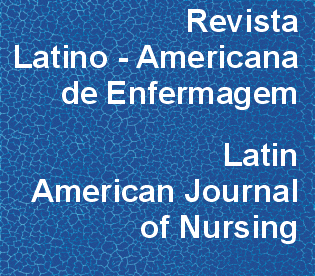Doctoral education in nursing in Brazil
DOI:
https://doi.org/10.1590/S0104-11692008000400003Keywords:
education, nursingAbstract
This study aimed to present the trajectory of doctoral education in nursing in Brazil from 1981 to 2004. A descriptive and analytical study was carried out, using documents available at the Brazilian Federal Agency for Support and Evaluation of Graduate Education, a body responsible for the recognition, evaluation and coordination of graduate studies in Brazil. Data analysis revealed that there are 13 doctoral courses in nursing, most of which are concentrated in the Southeast (69.2%), and that teaching and scientific production have been influenced by demographic and epidemiological transitions and by historical, social and political movements. Knowledge production is related to Nursing Care, Health Management and Practices and Theoretical Foundations of Care. Doctoral programs have prepared leaders in the fields of education, research and public policy development, in health institutions as well as in public policies, health institutions and governmental entities.Downloads
Download data is not yet available.
Downloads
Published
2008-08-01
Issue
Section
Original Articles
License
RLAE’s authorship concept is based on the substantial contribution by each of the individuals listed as authors, mainly in terms of conceiving and planning the research project, collecting or analyzing and interpreting data, writing and critical review. Indication of authors’ names under the article title is limited to six. If more, authors are listed on the online submission form under Acknowledgements. The possibility of including more than six authors will only be examined on multicenter studies, considering the explanations presented by the authors.Including names of authors whose contribution does not fit into the above criteria cannot be justified. Those names can be included in the Acknowledgements section.
Authors are fully responsible for the concepts disseminated in their manuscripts, which do not necessarily reflect the editors’ and editorial board’s opinion.
How to Cite
Doctoral education in nursing in Brazil. (2008). Revista Latino-Americana De Enfermagem, 16(4), 665-671. https://doi.org/10.1590/S0104-11692008000400003



